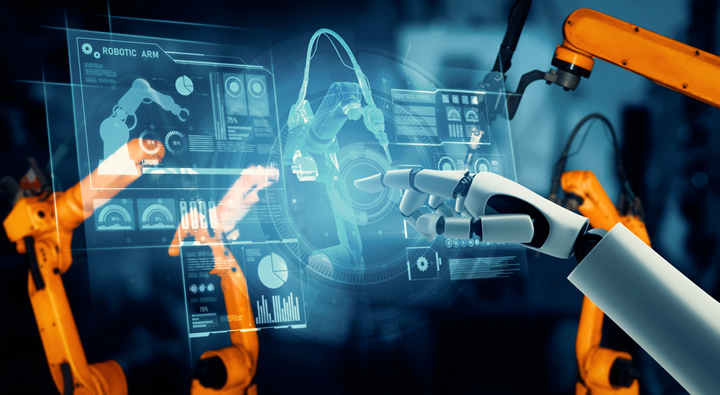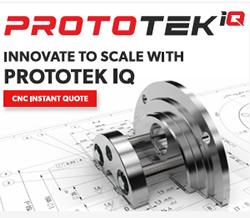Revolutionizing Manufacturing with AI Solutions

Against climate, geopolitical, and supply chain pressures, the manufacturing sector, long considered the engine of most G20 economies, is experiencing a transformative shift. Among the most promising advancements is using artificial intelligence (AI) driven solutions to rethink how manufacturing production processes are designed, operated and quality controlled. These technologies empower process engineers to refine manufacturing operations with unprecedented precision, substantially reducing production costs and cycle times and enhancing product quality. This shift represents a significant leap forward in operational efficiency, resilience and sustainability, laying the groundwork for a more agile and resource-conscious industrial future.
Traditionally, process optimization in manufacturing has relied on time-consuming manual experimentation, spreadsheets, legacy desktop software, and static process control systems. While engineers still need to collect data, analyze trends, and implement changes, AI-driven platforms revolutionize this approach by enabling continuous monitoring and dynamic adjustments in real-time.
These platforms collect data from various sources, including but not limited to sensors and machinery across production lines and lab instruments. The data is then fed to physics simulators that offer the production line's virtual simulation capabilities. AI algorithms can then use the Physics simulators to optimize existing processes by recommending actions to run production more effectively, aligning with key performance indicators such as cost savings, reduced cycle time, and enhanced productivity. This comprehensive approach ensures manufacturing operations achieve peak efficiency while minimizing waste.
The integration of no-code and low-code solutions has further accelerated the adoption of AI in manufacturing. These platforms require minimal programming knowledge, making advanced AI tools accessible to a broader range of professionals, including process engineers without extensive data science expertise.
No-code solutions typically offer drag-and-drop interfaces, allowing users to build workflows, dashboards, and models easily. Low-code platforms strike a balance by enabling customization through simplified scripting or configuration.
For instance, a process engineer can use a no-code platform to create an AI model that monitors and optimizes the energy consumption of a production line. The model might identify inefficiencies during peak operational hours and suggest adjustments, such as modifying machine settings or staggering equipment usage. These solutions enable faster decision-making and implementation by streamlining such tasks, which are critical in dynamic manufacturing environments.
Quality Optimization: A Key Benefit of AI Integration
Product quality is critical to manufacturing success, directly impacting operational efficiency. AI-driven platforms enhance quality by continuously monitoring production data to maintain optimal standards and minimize deviations.
For example, in pharmaceutical manufacturing, AI algorithms perform real-time analysis to adjust critical process parameters—such as temperature, humidity, and mixing times—ensuring consistent product specifications and minimizing batch-to-batch variations. This proactive approach helps prevent quality defects, ensuring that medications meet stringent regulatory standards.
Moreover, AI enables robust process verification by analyzing data from multiple stages of production to identify deviations and ensure adherence to validated procedures. This continuous verification helps manufacturers detect potential risks early, maintain process consistency, and comply with Good Manufacturing Practices (GMP). By leveraging AI-driven insights, pharmaceutical companies can proactively address quality challenges, streamline operations, and reduce regulatory scrutiny.
By integrating AI for process verification and real-time optimization, pharmaceutical manufacturers can significantly improve product quality, maintain compliance with evolving regulatory requirements, and build greater trust with patients and healthcare providers.
Cost Reduction Through AI-enabled Optimization
Cost reduction is a top priority in manufacturing, encompassing everything from raw materials to labor, energy, and utilities. AI-driven platforms are pivotal in minimizing these costs by enabling engineers to optimize their processes to improve efficiency and reduce waste. These platforms enable engineers to analyze production workflows to identify areas for improvement and recommend precise adjustments to operational setpoints to help conserve materials without compromising on final product quality.
Industries across manufacturing have already seen significant cost reductions through AI-driven process optimization. For example, real-time analysis of variables such as feed rates and mixing speeds in pharmaceutical and chemical manufacturing can help improve final product quality. In consumer goods manufacturing, these recommendations can also guide engineers on how to scale-up new products and formulations, significantly reducing the time to market.
A leading global pharmaceutical manufacturer offers a prime example of these benefits. By implementing a low-code AI platform to optimize its solvent swap distillation process, the company achieved a 20 percent reduction in cycle times and cut energy costs by 15 percent. These results showcase how AI’s impact extends beyond material savings, driving efficiency across the production cycle.
Despite its advantages, implementing AI-driven platforms in manufacturing can come with several challenges. Data integration complexities and lack of internal AI expertise are common barriers. Still, the rise of accessible no-code and low-code solutions mitigates these issues by simplifying deployment and encouraging adoption amongst everyday operators and engineers.
Manufacturers must foster a culture of innovation and continuous learning to maximize the benefits and remain competitive in today’s market. Collaborating with technology providers for tailored solutions can address specific operational needs without burdening internal staffing resources.
In the long term, AI-driven platforms will become indispensable for maintaining a competitive advantage in manufacturing. These solutions align with global efforts to deploy AI to improve domestic manufacturing capabilities, enabling engineers to reduce energy consumption, minimize waste, and optimize material usage.
AI-driven platforms, particularly those leveraging no-code and low-code workflows, represent a transformative force in manufacturing. By enabling real-time process optimization at scale, they empower everyday process engineers to address inefficiencies proactively, leading to significant reductions in manufacturing costs. As the industry adopts these innovations, manufacturers will realize enhanced profitability and contribute to a more sustainable and resilient future.
Thouheed Abdul Gaffoor is a repeat founder and product leader passionate about deploying AI in foundational industries. He has co-founded and scaled two global B2B SaaS startups, including Basetwo, an AI-driven platform that empowers manufacturing engineers to optimize production and reduce costs. Previously, he served as Head of AI for Autodesk following the acquisition of his Toronto-based AI startup by Autodesk Water Infrastructure (prev. Innovyze). Throughout his career, Thouheed has patented innovative industrial AI technologies, led AI deployments with Fortune 500 manufacturers, energy companies and utilities, and raised capital from global VCs.
Comments (0)
This post does not have any comments. Be the first to leave a comment below.
Featured Product

